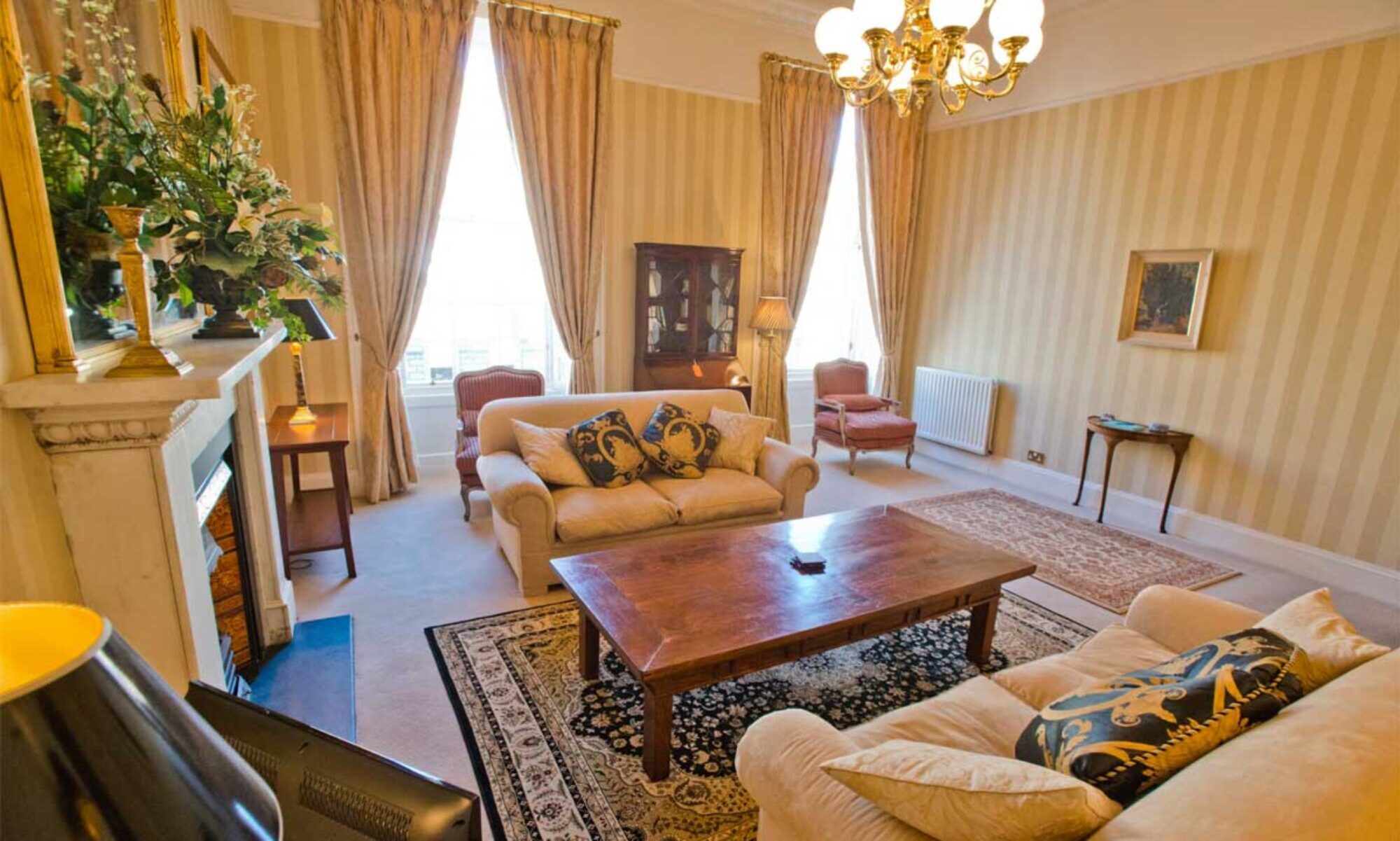Calton Hill
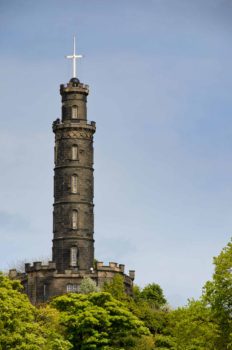
Calton Hill in Edinburgh is at the west end of Princes Street, just a short walk away from Anthemion in New Town, and you’ll get your reward for the wee climb to get to the top. There are a number of historic monuments and 360º views. It’s an excellent way to get the lay of the land and to see several of Edinburgh’s seven hills.
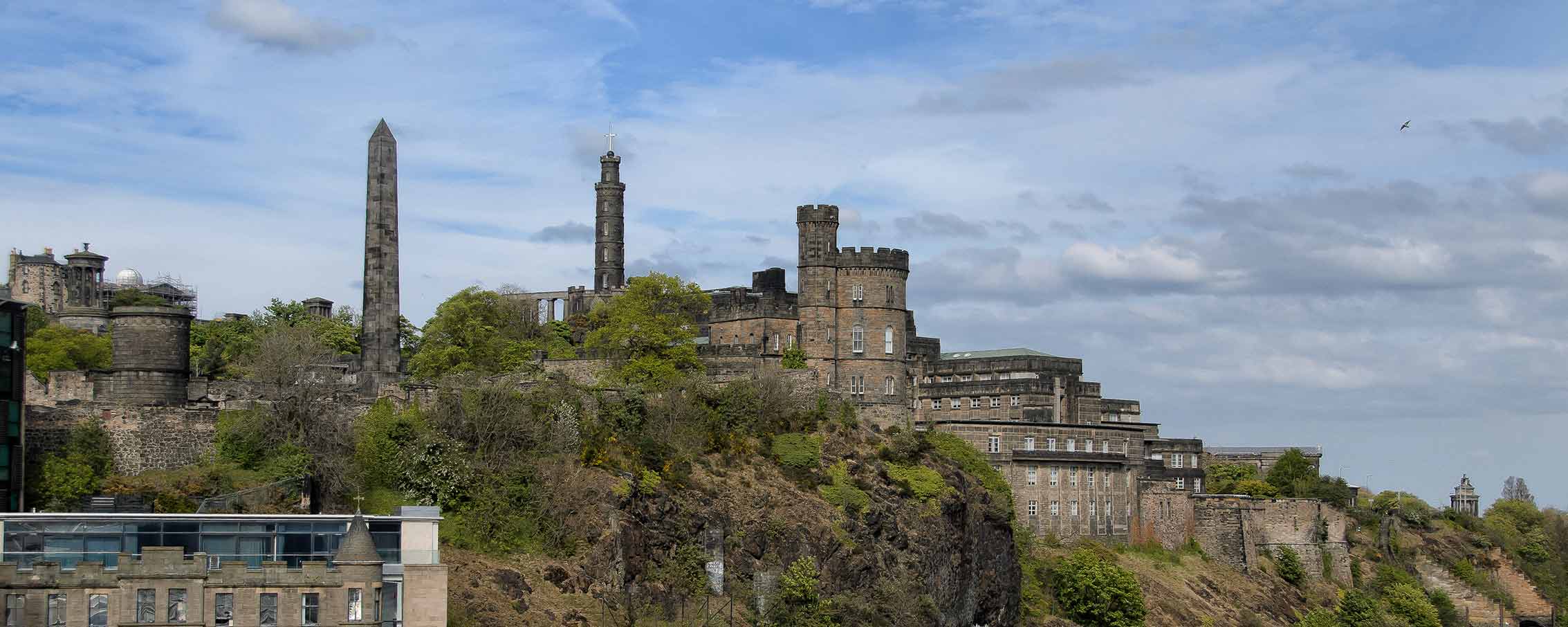
Nelson Monument
Make sure you don’t miss a visit to the Nelson Monument. It was built between 1807 and 1815 to commemorate Nelson’s victory and death at the Battle of Trafalgar in 1805. (Around 20% of the military in the Battle were Scots. 10-year-old John Doig from Leith was among them, and was the youngest crew member). The monument sits on the highest point at Calton Hill. Its original purpose was as a signal mast to the sailors in the port of Leith. As you climb the 143 steps to the gallery at the top, you can see why!
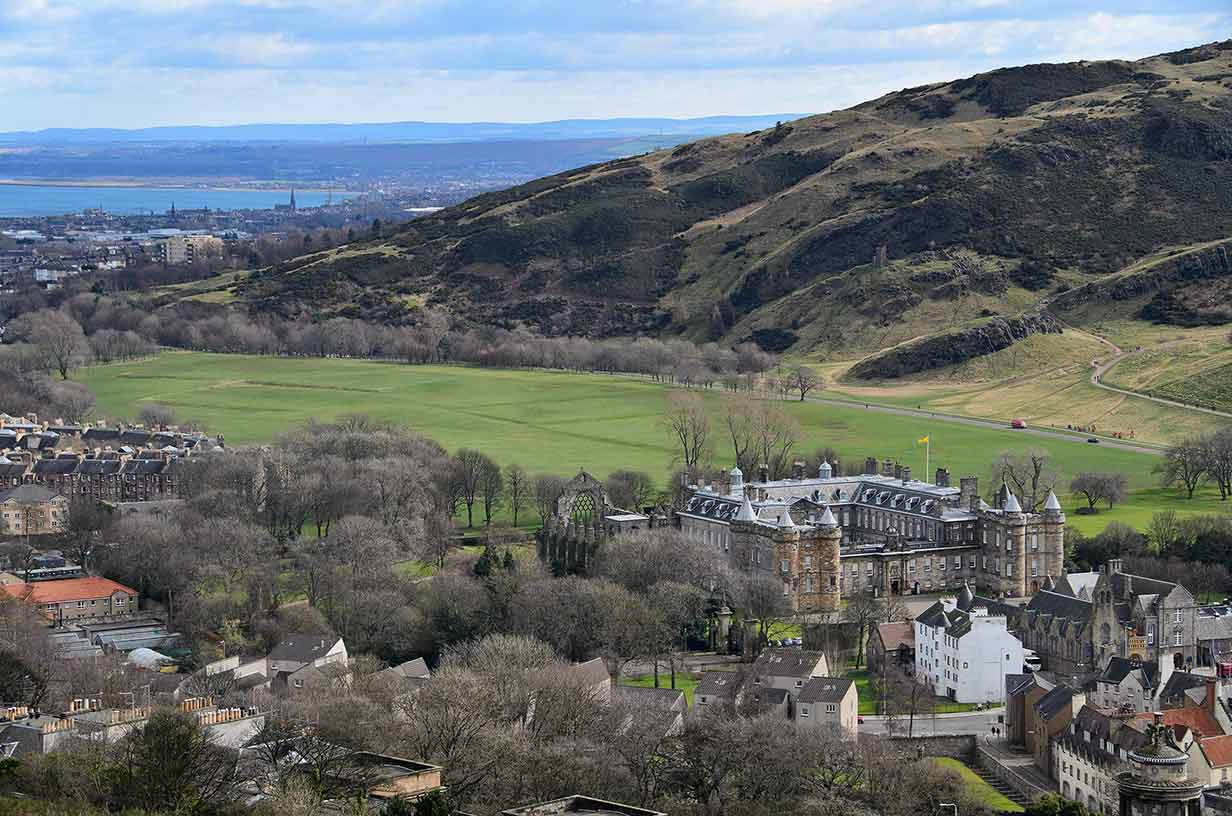
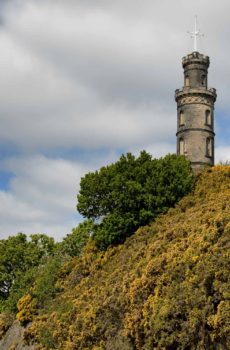
The city fathers discussed the design of the monument at length, and wrestled with the inevitable funding problems. They finally settled on architect Robert Burn’s design. He modelled the monument on an upturned telescope. The castellations on top of the monument mirrored those of the notorious Calton Jail, which was on the south of the hill.
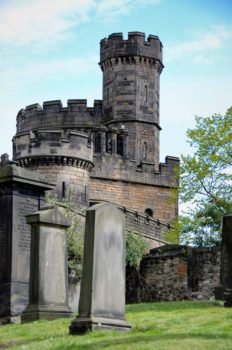
Money was tight, so when Mrs Kerr, the widow of a petty officer, leased the monument to set up a tea room, she helped provide the necessary funding to complete the job.
The Time Ball
In 1853, the city added the time ball. It signalled the time to the sailors who set their chronometers by its rise and fall, and were thus able to calculate longitude more precisely. Originally, the clock in the nearby City Observatory (about which, more in future!) triggered the clock via an underground wire. The ball rises just before 1pm and falls at exactly 1pm. Because on foggy days the sailors could not see the ball, the authorities established the one o’clock gun at Edinburgh Castle so that the signal could be heard if not seen. The two were synchronised via a very long telegraph wire between Calton Hill and the Castle. For 150 years the ball faithfully fulfilled its role, until a storm damaged it in 2007.
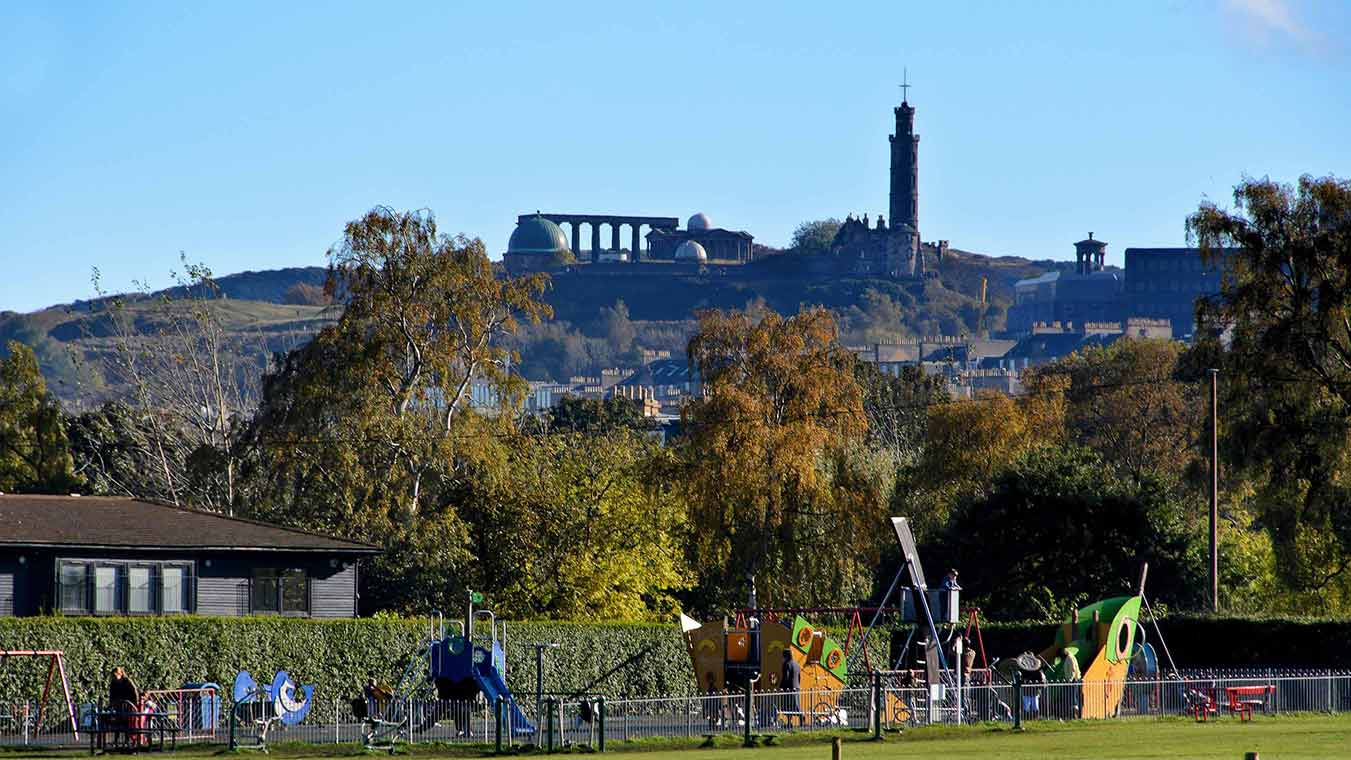
The City of Edinburgh Council and restored the monument in 2009 and the ball was repaired, and you can still see it in operation today.Ritchie & Son Clockmakers have had the responsibility of operating the ball since 1852 and continue to this day.
Trafalgar Day
On Trafalgar Day, 21 October, every year, the city runs flags with the message that Nelson set out at the start of the battle: “England expects that every man will do his duty”. On a slightly more down-to-earth matter, Holyrood Palace has also used flags from the monument when they signalled the cancellation of royal garden parties due to rain!
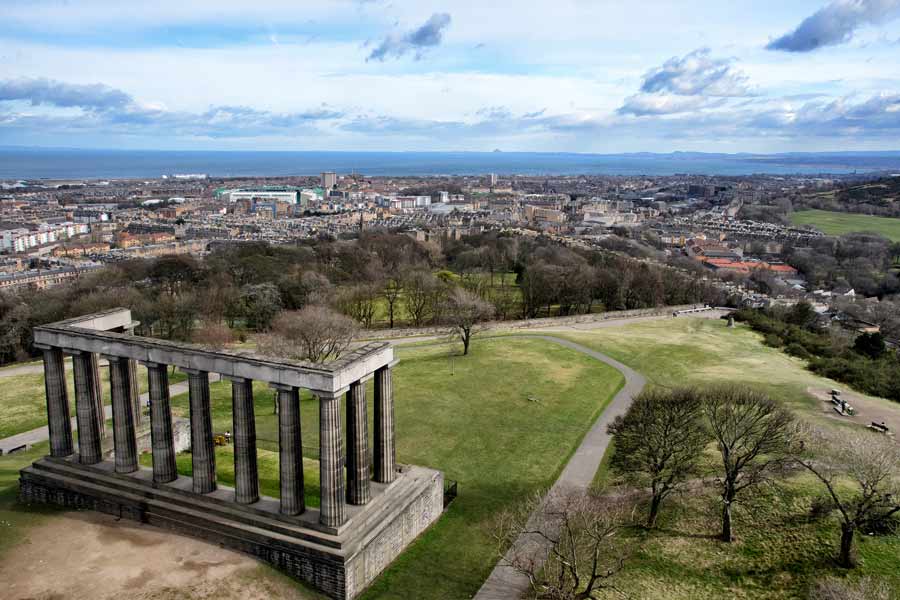
If you’re fit to climb the stairs, it’s well worth a visit. The views are unparalleled. It’s open all year round.
